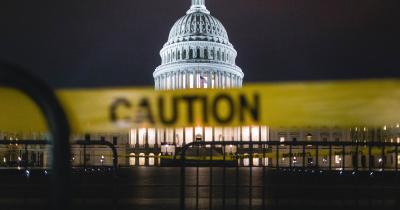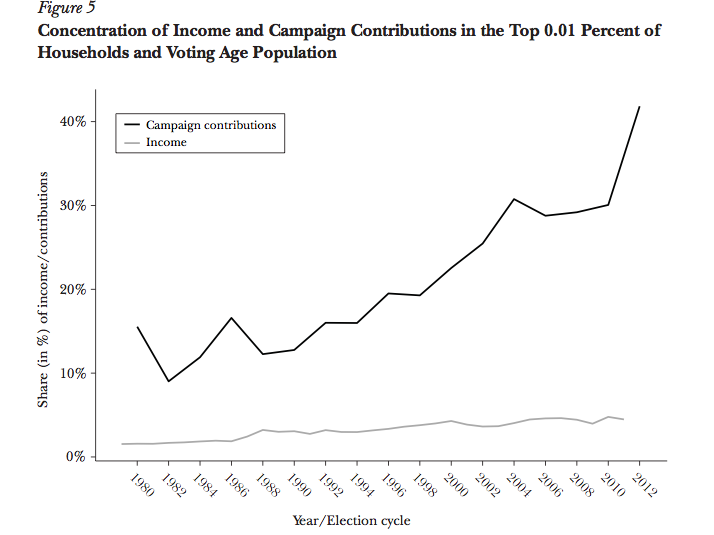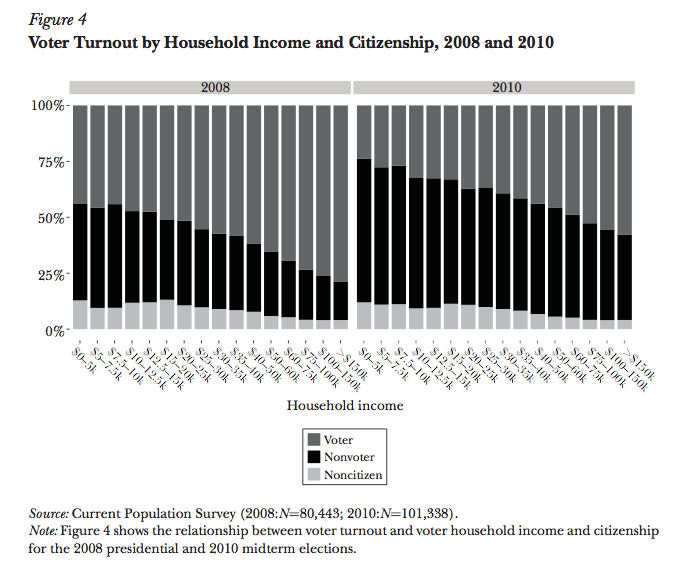
Economic Inequality and Political Inequality are Mutually Reinforcing
When politics is dominated by the wealthy, the interests of the wealthy are advanced whilelower income and working families are ignored.

The new American Economic Association Journal of Economic Perspectives looks at income inequality and the rising 1 percent. Among the articles is a piece on why democracy hasn’t slowed economic inequality. In other words, why haven’t our elected officials acted to slow economic inequality? The answer, as we highlighted in Stacked Deck, is that economic inequality and political inequality are mutually reinforcing. When politics is dominated by the wealthy, the interests of the wealthy are advanced while the interests of lower income and working families are ignored.
Campaign contributions from the top 0.01 percent of income have risen dramatically and, increasingly, a handful of super wealthy individuals are dominating political spending. As the paper highlights:
In 1980, the top contributor was Cecil R. Haden, owner of the tugboat operator Bay-Houston Towing, who gave $1.72 million (in 2012 dollars), nearly six times the amount given by the next largest contributor. In 2012, the two largest donors were Sheldon and Miriam Adelson, who gave $56.8 million and $46.6 million, respectively.
The same time, voter turnout among low-income households is low. An increasing percentage of poorer households are non-citizens, who cannot vote, and fewer than half of the households with incomes below $15,000 voted. In contrast, over 80 percent of households with incomes above $150,000 voted. High income and wealthy interests are dominating both campaign contributions and voter participation.
The result is that elected officials are very responsive to wealthy interests and virtually unresponsive to poor and lower income households. Decreasing economic inequality is not as relevant the wealthy, hence the limited action and response to rising inequality.
The paper also points out that the revolving door between politics and the private sector also contributes to advancing corporate and affluent interests:
One view is that these people are dedicated public servants who sacrifice financial gain to serve the American public. The other is that the revolving door, even with the best of intentions, clouds their decision making. Revolving door jobs, lobbying, and campaign contributions by the rich, when coupled with free market ideological proclivities in the voting population, are likely to have abetted the increase in inequality.
Economic inequality contributes to political inequality, which then further economic inequality because the interests and priorities of the wealthy are advanced over policies that help working and low-income families. This cycle is why the capital gains tax rate is continually cut while the minimum wage remains stagnant, even though the minimum wage impacts far more people.
Until we remove the corrosive influence of money in our electoral system and protect individual’s right to vote, we can expect this cycle to not only continue but become even more pronounced.



